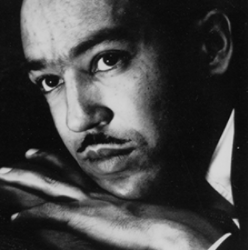“who speaks of our triumphs, of how we
altered the course of a raging river of oppression
how we turned our love for each other into a
garrison of righteous rebellion”
—Kenneth Carroll
As we approach July 4 and our nation’s annual commemoration of the Declaration of Independence, we do so in the context of historic calls for justice and acknowledgement of the truth about how our country was founded and built through the colonization of indigenous lands, the enslavement and genocide of millions, and the continuous oppression of the people. This is a time to reflect on the word “freedom.” Below you can find poems and activities that witness, speak to, and might enable that work.
The following activities have been adapted from “Teach This Poem: ‘Old South Meeting House’ by January Gill O'Neil.” They can be done alone or with a guardian, sibling, friend or partner.
- Big picture: What associations do you have with the words “Boston Tea Party?”
- Read this short excerpt about the Old South Meeting House and the role it played at the beginning of the American Revolution. Write down what you think are the important words and phrases in the excerpt. Then, share what you’ve learned about the Old South Meeting House from this excerpt with your partner.
- Read January Gill O’Neil’s poem silently and write down the words and phrases that jump out to you. Read the poem again aloud and add to your lists of words and phrases. Repeat this process with your partner reading aloud if needed.
- Share your words and phrases with your partner. What do these words and phrases tell us about the poem? What is the structure of the words? What might this have to do with the Old South Meeting House?
- What did you learn from the historical excerpt about the Old South Meeting House? What did you learn from the poem? What do you think accounts for the difference? Give detailed evidence from both the historical excerpt and the poem.

Langston Hughes was born February 1, 1902, in Joplin, Missouri. Hughes is particularly known for his insightful portrayals of Black life in America from the twenties through the sixties. He wrote novels, short stories and plays, as well as poetry, and is also known for his engagement with the world of jazz and the influence it had on his writing, as in his book-length poem Montage of a Dream Deferred (Holt, 1951). His life and work were enormously important in shaping the artistic contributions of the Harlem Renaissance of the 1920s.
Learn more about Langston Hughes and read more of his work at Poets.org.
This week’s poetic term, free verse, is poetry not dictated by an established form or meter and often influenced by the rhythms of speech. The free verse poem fits no mold; it has no preexistent pattern. Learn more and write your own poem in free verse.
